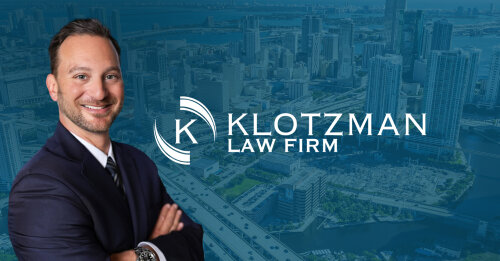Best Restructuring & Insolvency Lawyers in New York
Share your needs with us, get contacted by law firms.
Free. Takes 2 min.
Or refine your search by selecting a city:
List of the best lawyers in New York, United States
About Restructuring & Insolvency Law in New York, United States
Restructuring and insolvency law in New York deals with the legal processes available to businesses and individuals facing serious financial difficulties. These laws guide how debts should be reorganized or resolved when a person or company is unable to meet their obligations. New York is known as a global financial hub, and its laws in this area are both comprehensive and sophisticated. These legal processes aim to balance the interests of debtors seeking relief and creditors hoping to maximize their recovery, often under the supervision of the courts.
Why You May Need a Lawyer
A lawyer specializing in restructuring and insolvency can offer vital help in several common scenarios:
- When your business is facing cash flow problems and creditor pressure
- If you are considering filing for bankruptcy, whether as an individual or organization
- When negotiating with creditors or lenders to modify or restructure debt terms
- If you have received a demand letter, lawsuit, or notice of foreclosure
- When you need to understand your legal rights and obligations in insolvency proceedings
- If you are a creditor in a bankruptcy case and want to protect your interests
Legal counsel can help you navigate complex rules, develop strategies for debt relief, and safeguard your financial future through negotiation or court actions.
Local Laws Overview
Restructuring and insolvency in New York are governed by both state and federal laws. The federal Bankruptcy Code is the primary law for bankruptcy proceedings and applies across the United States, including New York. The Southern and Eastern Districts of New York courts handle many high-profile bankruptcy cases. Key aspects include:
- Chapter 7 Bankruptcy: Provides for liquidation of assets to pay creditors, often used by individuals or closing businesses.
- Chapter 11 Bankruptcy: Allows businesses (and in some cases individuals) to reorganize debts and operations under court supervision.
- Assignments for the Benefit of Creditors: A state law alternative to federal bankruptcy, enabling the assignment of assets to a fiduciary for liquidation.
- Receiverships: Courts may appoint a receiver to manage property or finances during disputes or insolvency situations.
- Creditor Rights: New York law outlines specific rights for creditors, such as the ability to challenge fraudulent transfers or assert liens.
- Out-of-Court Workouts: Negotiated solutions may be available before formal bankruptcy is considered.
Expert legal advice is essential, as each choice comes with distinct legal and financial consequences.
Frequently Asked Questions
What is the difference between restructuring and insolvency?
Restructuring refers to reorganizing debts or business operations to restore financial health, often without court intervention. Insolvency means being unable to pay debts as they come due and may lead to bankruptcy or similar legal actions.
What types of bankruptcy are available in New York?
The most common types are Chapter 7 (liquidation), Chapter 11 (reorganization for businesses or high net worth individuals), and Chapter 13 (individual wage earner repayment plans).
Can I keep my home or business if I file for bankruptcy?
Whether you keep your home or business depends on the type of bankruptcy, the value of your assets, and state or federal exemptions. A lawyer can help assess your specific situation.
What happens to my debts if I file for bankruptcy?
Certain debts may be discharged, meaning you are no longer legally required to pay them. Others, like student loans or tax debts, may not be dischargeable. The outcome varies by case.
How long does the restructuring or bankruptcy process take?
A simple individual bankruptcy (Chapter 7) may last a few months, while a corporate reorganization (Chapter 11) can take years. Timing depends on complexity and court schedules.
What are my rights as a creditor in a New York bankruptcy case?
Creditors have rights to file claims, participate in court proceedings, challenge certain transactions, and in some cases, seek relief from the bankruptcy stay.
Are creditors allowed to contact me during bankruptcy?
Once bankruptcy is filed, an automatic stay generally prevents creditors from contacting you or taking collection action without court approval.
Is it possible to restructure debts outside of court?
Yes, out-of-court workouts with creditors are common and can be faster and more flexible than formal proceedings, but require negotiation and agreement from affected parties.
What is an Assignment for the Benefit of Creditors, and when is it used?
This is a state law process where a company assigns its assets to a third party to liquidate and distribute funds to creditors, often used as an alternative to bankruptcy.
How can I get started if I need legal help with restructuring or insolvency?
Consider gathering your financial documents, identifying your main concerns, and consulting a lawyer with experience in New York restructuring and insolvency matters for advice tailored to your situation.
Additional Resources
Several organizations provide information and assistance regarding restructuring and insolvency in New York, including:
- United States Bankruptcy Court for the Southern and Eastern Districts of New York
- New York State Unified Court System
- American Bankruptcy Institute
- New York State Bar Association - Business Law Section
- Legal Aid organizations offering debt and bankruptcy assistance
These resources can offer guidance, forms, and often referrals to qualified attorneys.
Next Steps
If you need legal assistance with restructuring or insolvency in New York, start by documenting your financial situation and identifying urgent issues such as creditor lawsuits or foreclosure notices. Contact a law firm or attorney experienced in bankruptcy and insolvency matters. An initial consultation can help you understand your options, develop a strategy, and ensure your rights are protected throughout any legal process. Do not delay seeking help if you are facing imminent legal deadlines or asset seizures, as prompt action can greatly influence your available solutions.
Lawzana helps you find the best lawyers and law firms in New York through a curated and pre-screened list of qualified legal professionals. Our platform offers rankings and detailed profiles of attorneys and law firms, allowing you to compare based on practice areas, including Restructuring & Insolvency, experience, and client feedback.
Each profile includes a description of the firm's areas of practice, client reviews, team members and partners, year of establishment, spoken languages, office locations, contact information, social media presence, and any published articles or resources. Most firms on our platform speak English and are experienced in both local and international legal matters.
Get a quote from top-rated law firms in New York, United States — quickly, securely, and without unnecessary hassle.
Disclaimer:
The information provided on this page is for general informational purposes only and does not constitute legal advice. While we strive to ensure the accuracy and relevance of the content, legal information may change over time, and interpretations of the law can vary. You should always consult with a qualified legal professional for advice specific to your situation.
We disclaim all liability for actions taken or not taken based on the content of this page. If you believe any information is incorrect or outdated, please contact us, and we will review and update it where appropriate.
Browse restructuring & insolvency law firms by city in New York
Refine your search by selecting a city.

















